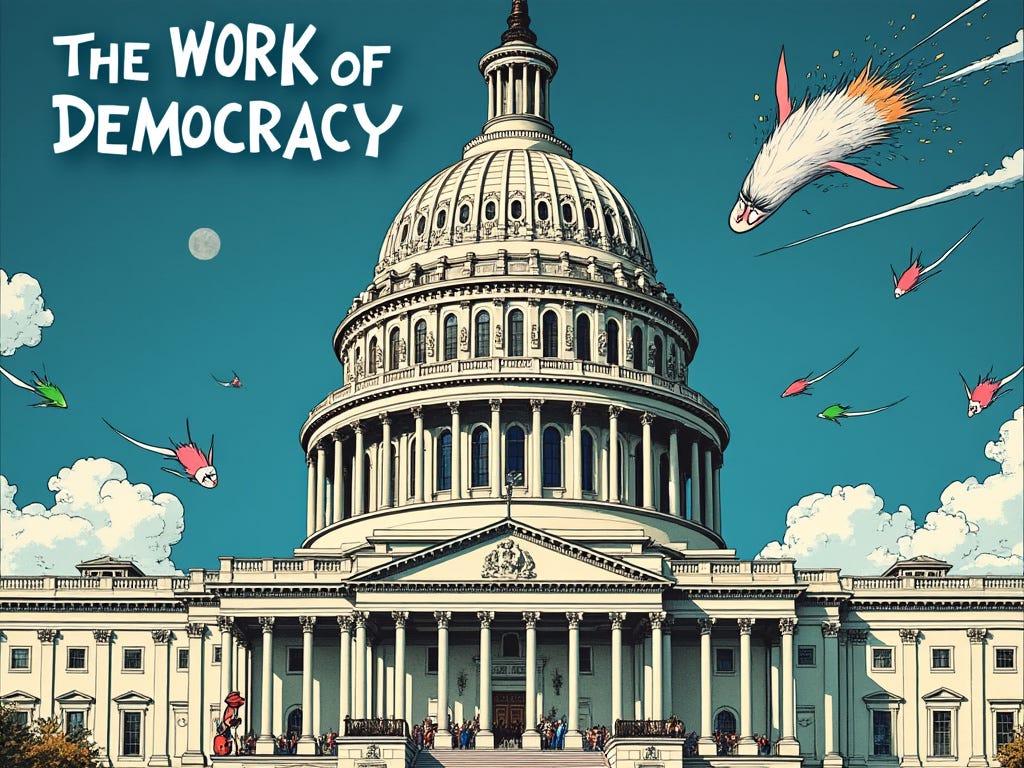Money talks. This truism resides at the heart of both democracy's greatest strength and its most glaring weakness. The power of the purse has long been recognized as the chief lever of political influence, from the Magna Carta's limits on royal exactions to modern debates over campaign finance and capital gains taxation. But in an era of rising inequality and eroding faith in institutions,1 the relationship between wealth and political power has come under intense scrutiny.
Modern democracy rests on the fiction of "one person, one vote" — that each citizen's voice should carry equal weight in shaping society. Yet throughout history, those with greater economic resources have understandably wielded outsized political influence. This tension between lofty discourses on political equality and the stark realities of economic inequality2 has been a perennial challenge for democratic systems, which quite cynically can be said to function best as pressure-release valves that allow for the mostly peaceful transfer of power back and forth between competing oligarchs.3
Some political thinkers argue that this disconnect between economic and political power is at the root of many of democracy's current ailments. When voters feel that their voices are drowned out by moneyed interests, it breeds cynicism and apathy. Low voter turnout, declining trust in government, and the rise of populist movements are all presented as symptoms of this supposed underlying malady.4
Keep reading with a 7-day free trial
Subscribe to Oliver Bateman Does the Work to keep reading this post and get 7 days of free access to the full post archives.




